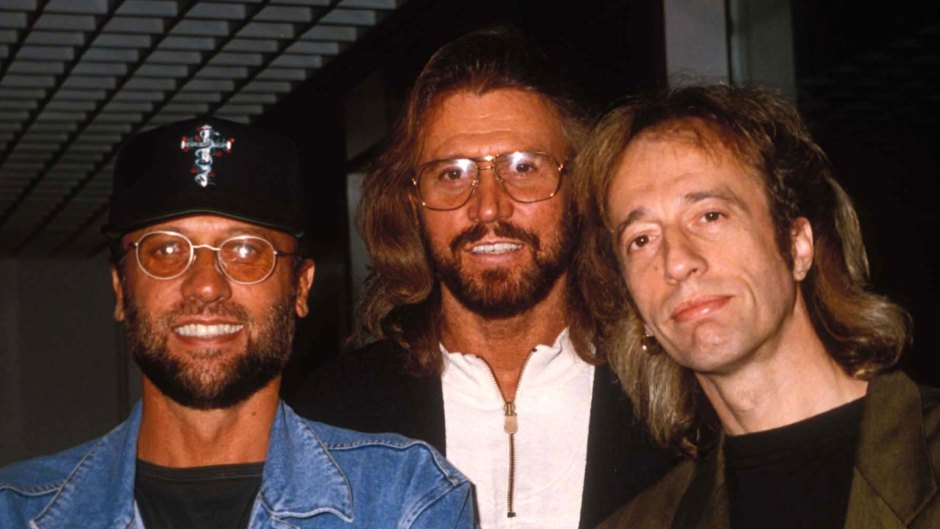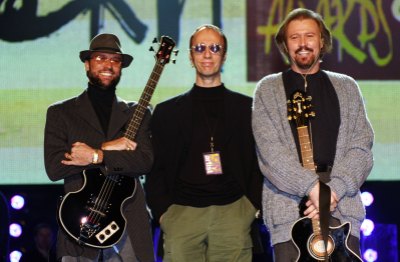
Globe Photos/Mediapunch/Shutterstock
Heartache and Addiction Couldn’t Break the Bee Gees Brothers’ Bond: ‘They Needed One Another’
With more than 120 million records sold worldwide, the Bee Gees were one of the most successful groups of all time — and one of the few of its stature whose core members were family. “They always recognized that they needed one another to do their best work,” David N. Meyer, author of The Bee Gees: The Biography, exclusively tells Closer Weekly. “So they were stuck with all their love, all their resentment, all their anger, and all the inspiration they gave each other.”
The brothers, Barry Gibb, Maurice Gibb and Robin Gibb, whose Saturday Night Fever recording would become the soundtrack to the disco era, also have the distinction of having written all of their hits. But perhaps their greatest achievement was finding a way to remain family despite incredible fame, rivalries, substance abuse and heartbreaking loss.
Twins Maurice and Robin discovered music when they began singing harmonies together at age 6. By the time their family immigrated from England to Australia in 1958, their father, Hugh, put them into a singing trio with their older brother Barry. “Music became an obsession, and eventually we felt more comfortable with each other than we did with anyone else,” Robin has said. “The three of us were like one person.”

But a birth order dynamic emerged, and no matter how much time went by or how hard they tried to escape it, each would always play the same role within the group. “Barry had considerable musical gifts. He was very much the big brother, the alpha. Robin, meanwhile, was a great singer and a pretty good songwriter, but he just didn’t have the will to stand up to Barry,” says Meyer, who notes that Maurice was always the brother in the middle. “He was a brilliant musician. If he could touch an instrument, he could play it.”
The group enjoyed their first rush of fame in the 1960s. “One of the most incredible moments I can remember is being in the north of England on stage and our manager told us that ‘Massachusetts’ had gone to No. 1,” said Maurice. “That was the most incredible moment of my life.”
There would be many more hits, including “To Love Somebody” and “I Started a Joke” in 1967 and 1968, but the Bee Gees would soon suffer a decline in popularity. After their early fame, the brothers pursued solo careers, got married and dealt with substance abuse issues. “Their nicknames for themselves were ‘Pissy, Pilly and Potty,’ because Maurice got piss drunk, Robin liked pills and Barry liked weed,” confides Meyer. “We never saw the hard stuff,” adds Barry. “But we saw enough. I watched that go on constantly with all three of my brothers.”
The trio’s younger brother, Andy, who was born in 1958, shared a very special kinship with Barry. “We were like twins,” he says. “Maurice and Robin were the real twins, but Andy and I were like twins. We sort of looked alike, and even had the same birthmark.”
In 1975, the reunited Bee Gees scored hits with “Nights on Broadway” and “Jive Talking,” and two years later with the Saturday Night Fever soundtrack, which would remain on Billboard’s charts for 120 weeks. “It’s hard to imagine the phenomenon of Fever,” said Maurice. “[It] was selling so much other record companies had to press it to keep up with demand.” The same year, Andy, then 19, enjoyed his first hit with “I Just Want to Be Your Everything.” However, he didn’t adapt to fame as well as his brothers did. “Success was just torture for Andy. He never knew how to deal with it,” says Meyer.

His death in 1988 at age 30 from a heart ailment exacerbated by years of drug use was a tragedy his elder brothers would never recover from. “Andy and I would play [tennis] just about every day. I could see something was wrong with him because he would get very, very red in the face. His habits had caught up with him,” Barry says.
“I lost my best friend when I lost Andy.” The family would suffer another blow when Maurice died suddenly in 2003 due to complications from a twisted intestine. By then he had obtained sobriety and was a devoted family man. “He was such a kind man with a huge heart. He was the kind of person who always made you feel appreciated, heard and loved,” his daughter Samantha Gibb, who owns M.E.G. Productions, a recording and media company in Nashville named for her father, tells Closer.
Without Maurice, Robin and Barry drifted apart, but Barry reached out before Robin’s death from cancer in 2012. “We laughed about a lot of things, and we sort of made up. At least we were together,” recalls Barry. And perhaps that was enough.
“My dad loved being a Bee Gee more than anything else,” Robin’s eldest son Spencer shares with Closer. “I don’t think he ever fully appreciated how successful he and his brothers had become. He was like a little kid, always excited about a song they’d written. Working with his brothers was one of the things that made him the happiest.”









































